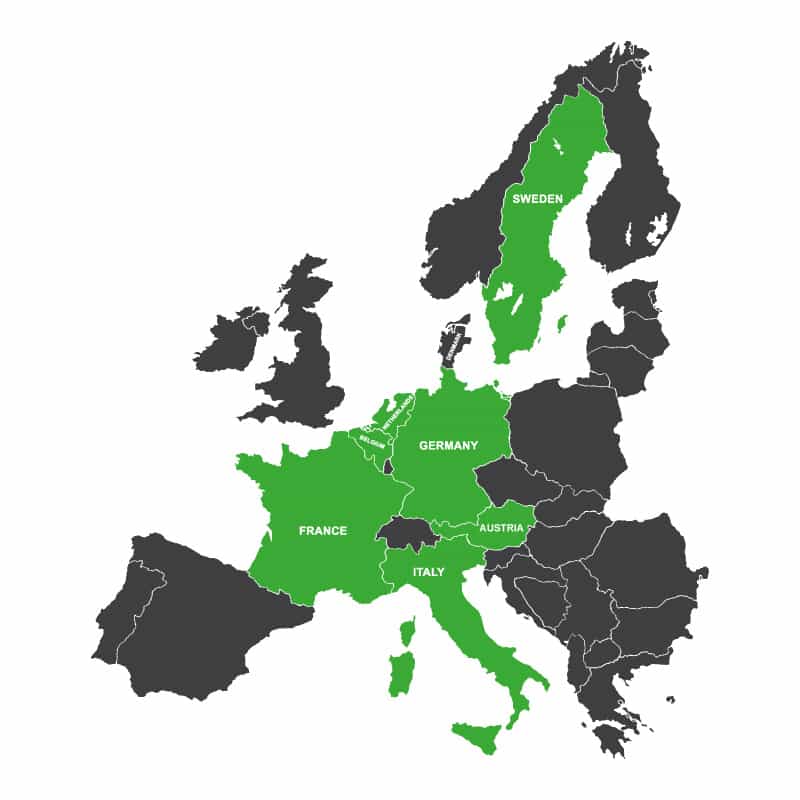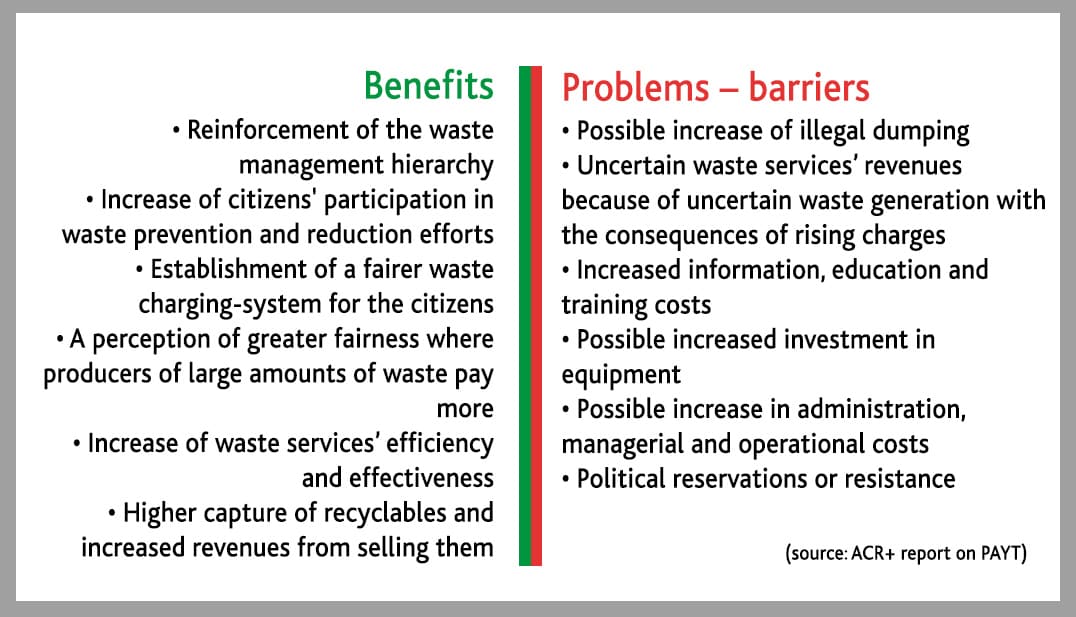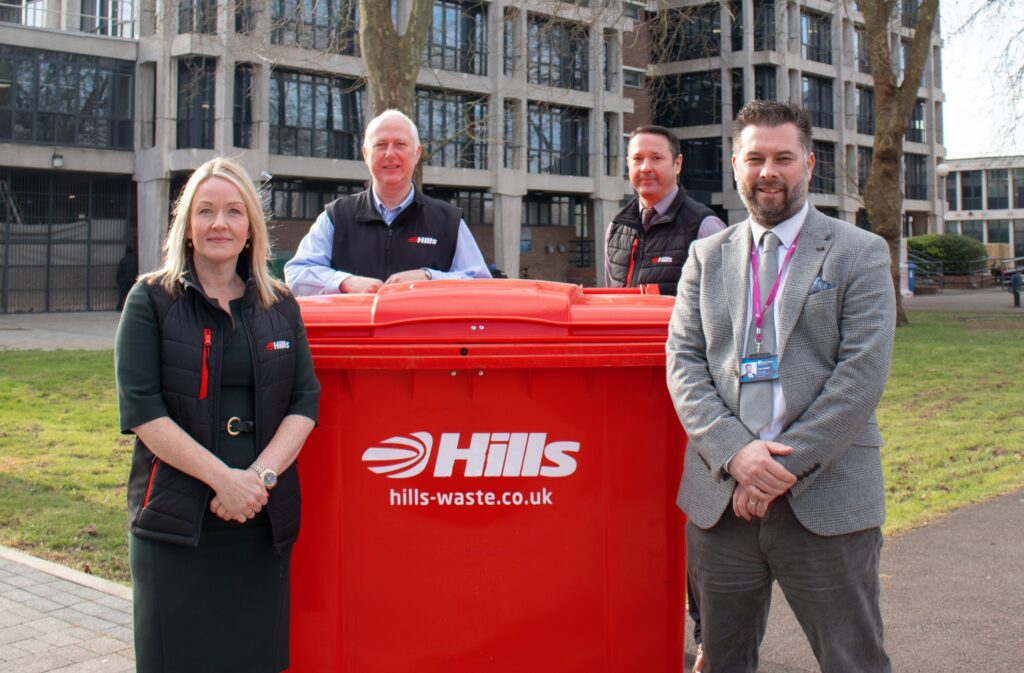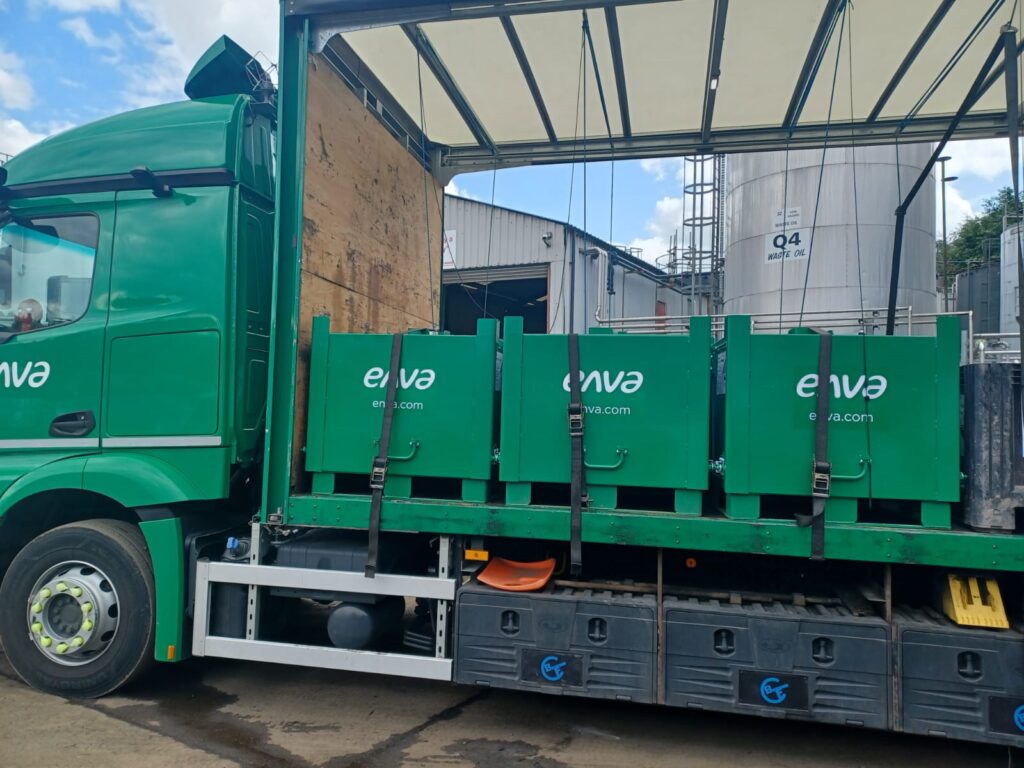But the report also warns that municipalities could face higher implementation costs alongside uncertain revenues, and risk illegal dumping.

The new report, titled ‘Cross-analysis of ‘Pay-As-You-Throw’ schemes in selected EU municipalities,’ looks at the potential benefits and challenges when introducing Pay-As-You-Throw, focusing on household waste.
In the face of rapid increases in production and consumption, the report claims that waste management schemes have failed to decouple economic growth and waste creation. “Connecting consumption with environmental impact will make up a critical part of addressing this challenge, and PAYT offers a potential piece of this puzzle by giving citizens an incentive to reduce waste,” the report says.
Results
PAYT, which follows a methodology similar to water and electricity billing, provides an incentive for waste reduction by relating the costs paid by a household to the amount of waste it produces. This can be implemented through a system of priced bin bags, volume, frequency, weight, or a combination of the above.
The possible implementation of PAYT in the UK has been a subject of discussion, with fears of public opposition (see letsrecycle.com story).
The study looks at the application of PAYT through several case studies, examining seven municipalities from seven different European countries: Interza (Belgium), Maastricht Municipality (the Netherlands), Umeå Municipality (Sweden), Zollernalbkreis (Germany), Treviso (Italy), Besançon (France) and Innsbruck municipality (Austria).
Results show that PAYT has the potential to adapt well to local conditions, encourage waste reductions, increase recycling and composting and to be well-received by stakeholders, which gives it potential to spread.
Challenges
But the report also notes that ‘there is not such a thing as ‘one fit for all’ guideline to make a PAYT scheme work since no municipality is the same,” and comes with its own set of issues and circumstances. Moreover, in order for PAYT schemes to be successful, municipalities need to be “willing to expand collection services, educate users, and deal with a large amount of data.”
This expansion can result in increased administration and operational costs as well as costs for training, information, education and equipment. Unpredictable waste generation can lead to uncertain revenues, which can translate to rising charges and a possible increase in illegal dumping as a result.
Yet, acknowledging that the policy cannot tackle waste levels on its own, the report concludes that, if backed by sufficient recycling infrastructure and supported within a framework of environmental policy measures, PAYT schemes have “a strong potential to reduce waste and increase recycling,” and the growing collection and sale of recyclables can increase revenues.

Françoise Bonnet, ACR+ Secretary General, said: “PAYT is one of the economic instruments that local authorities can implement on their territories in order to increase their resource efficiency and boost circular economy.
“The Circular Economy package published by the European Commission in December 2015 clearly mentioned the insufficient use of economic instruments like PAYT schemes which contribute to the achievement of high recycling rates and as such invites member states to make better use of them. We hope that this report will inspire local authorities in Europe.”








Subscribe for free